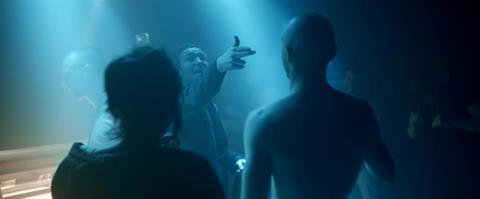Dir: Sebastian Schipper. Germany. 2015. 139mins

Looking for the editor credit? German director Sebastian Schipper’s fourth feature doesn’t have one: it was all shot in a single take, in the same time it takes to watch the film. That’s great for cinematic completists who will want to add Victoria to a single-take film list that now includes Russian Ark, Uruguayan horror The Silent House and (if you allow analogue or digital trickery) both Hitchcock’s Rope and Innaritu’s Birdman.
You have to admire the stamina of Norwegian cinematographer Sturla Brandth Grovlen, who gamely climbs stairs, gives chase and dives into cars as the action unfolds.
If on the other hand all you’re interested in is a good film, the news is mixed: this story of a young Spanish girl getting more than she bargained for when she hooks up with four Berlin lads after a night spent clubbing has moments of real adrenalin and an engaging, if somewhat sentimental, view of proletarian male camaraderie, not to mention the buzz of a tender love story that (no mean feat) traces a reasonably satisfying dramatic arc in a little over two hours of real time.
It’s just a shame that the story itself, once you clear away the one-take smokescreen, also feels like it was made up in a single session after a night spent clubbing. Particularly after the midway dramatic turning point, it stretches character credibility, and resorts too much to criminal-underworld cliché and the driving pace of its own perpetual motion, which curiously does nothing to paper over the longueurs in certain over-stretched sequences. You come out on a high of sorts – but it soon fades.
Young Spanish talent Laia Costa puts in a livewire performance as Victoria, a vivacious twenty-something (though she looks younger) who is first seen bopping alone in a strobe-lit dance trance in a Berlin nightclub. Outside, she meets four drunken lads, not the kind a girl alone might normally hook up with – but Victoria has a fearless streak, a sort of willing naivety, that attracts her to the group of friends – especially Sonne (Lau), the only one of the four who, in his inarticulate laddish way, seems to aspire to better things and wider views.
She has no German (odd, given that she works in a local café) so they all converse in more or less broken English, with Victoria left out of the friends’ Berliner slang exchanges – a cause of tension as the jeopardy kicks in when skinhead Boxer (Rogowski) is asked to do a favour for a gangland boss straight from central casting, in return for the protection he enjoyed while in prison.
You have to admire the stamina of Norwegian cinematographer Sturla Brandth Grovlen, who gamely climbs stairs, gives chase and dives into cars as the action unfolds. But some of the best scenes are the quieter ones – like the one set on the apartment rooftop the four friends use to hang out, where young male group dynamics are subtly exposed by the intrusion of this smart and pretty girl. Or the following café scene, where Victoria is revealed to be a conservatoire student and accomplished pianist who never quite made the exacting grade required by her teachers.
Though this backstory comes across as a little gratuitous, at least it feels like it’s moving the plot and the characters forward – something that is put on the hold, in large part, when Victoria suddenly turns into a heist movie. An ambient piano-based soundtrack by German musician and composer Nils Frahm is used effectively to play against the mood of certain scenes – as when it overlays the techno of a second nightclub session, giving the friends’ frantic dance moves a dreamlike veneer.
Production company: Monkeyboy, Deutschfilm, Radicalmedia, WDR, Arte
International sales: The Match Factory, info@match-factory.de
Producers: Jan Dressler, Sebastian Schipper, Anatol Nitschke, Catherine Baikousis, David Keitsch
Screenplay: Sebastian Schipper, Olivia Neergard-Holm
Cinematography Sturla Brandth Grovlen
Production designer: Uli Friedrichs
Music: Nils Frahm
Main cast: Laia Costa, Frederik Lau, Franz Rogowski, Burat Yigik, Max Mauff






![The Brightest SunScreen[Courtesy HKIFF]](https://d1nslcd7m2225b.cloudfront.net/Pictures/274x183/3/5/0/1448350_thebrightestsunscreencourtesyhkiff_312678.jpg)














